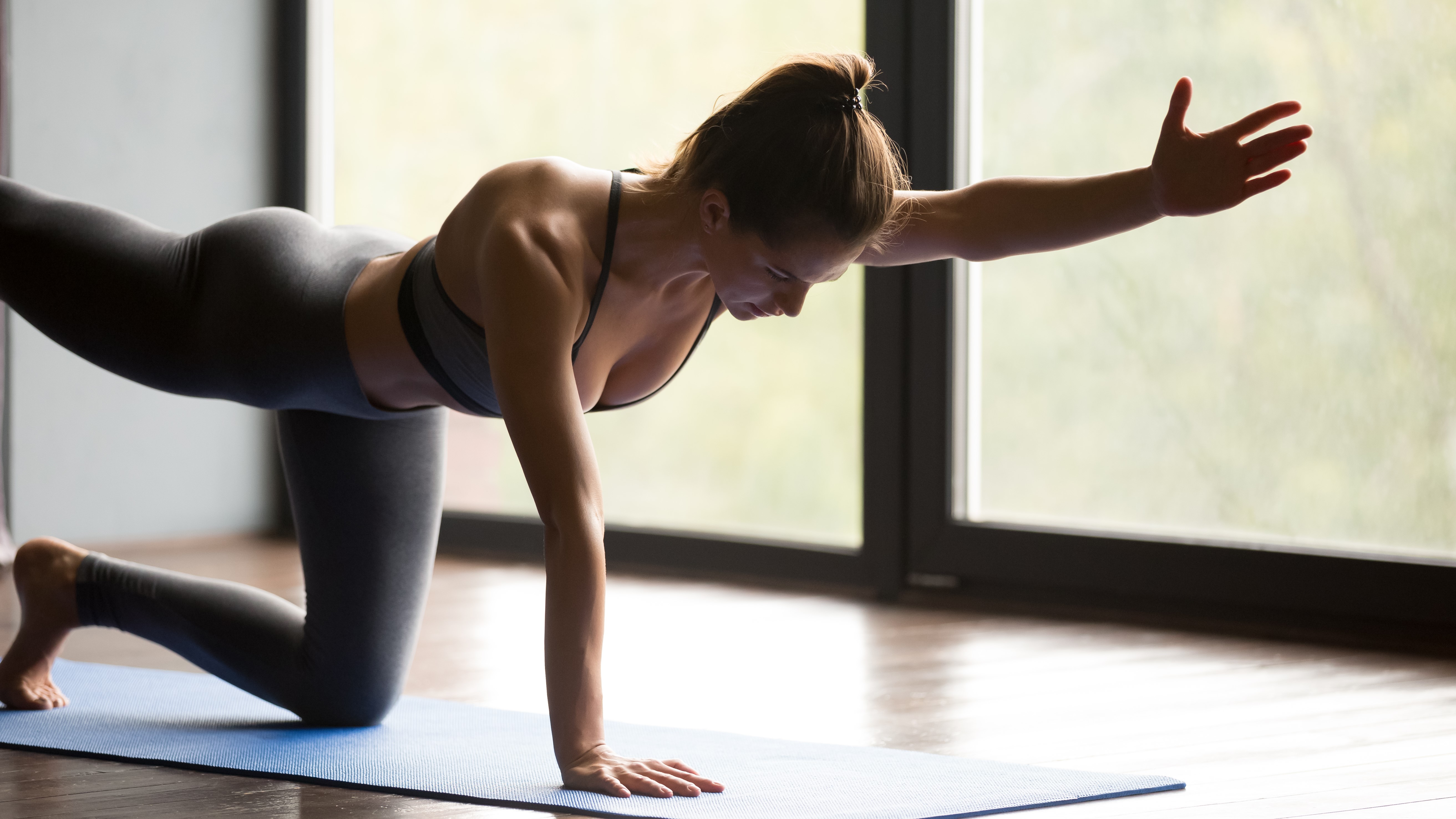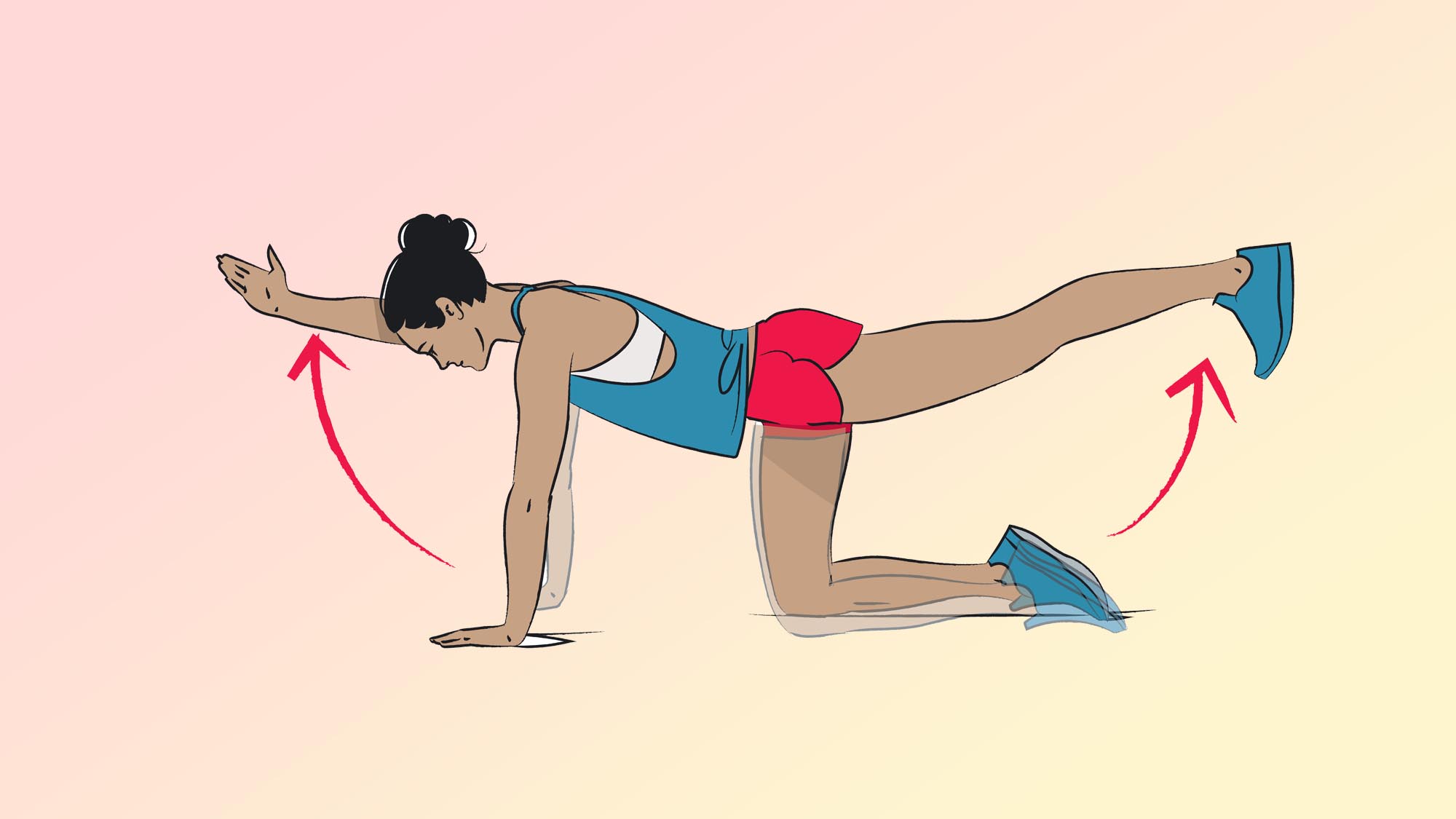
Here on the Tom’s Guide fitness desk, we’re no strangers to slightly unusual fitness challenges — from doing Arnold presses every day for a week, to adding 100 bird dogs a day to my morning routine, there’s nothing we love more than taking a deep dive into an exercise. Next up? Bird dog crunches.
The bird dog exercise is named after the position a hunting dog makes when it’s located a bird — muzzle forward, leg raised. It’s essentially a core exercise, but it also targets the erector spinae, the glutes, hamstrings, upper back, and deltoid muscles, as well as the rectus abdominis muscles, often referred to as the ‘six-pack’. We’ve looked at how to do a bird dog, and what happens when you do them every day here, but I decided to up the ante by adding a crunch to the move — read on to find out what happened.
As a reminder, if you’re new to an exercise, or returning to exercise following an injury, it’s a good idea to check your form with a personal trainer before adding reps. Exercising with bad form can put you at risk of injury. Like with all ab workouts, the key here is to move slowly, and with control, engaging your core throughout, thinking about sucking your belly button into your spine.
How to do a bird dog crunch
Let’s start by taking a look at the bird dog crunch. It’s worth doing this exercise on one of the best yoga mats to avoid any knee pain:
- Start on all fours, with your knees stacked underneath your hips, and your wrists stacked underneath your shoulders. Engage your core, and ensure your back is straight — your back should be flat.
- From here, extend your left arm straight ahead and your right leg behind you.
- Hold at the top for a few seconds, then crunch your elbow in towards your knee underneath your body.
- Extend both back out, then crunch again.
- Complete all your reps on one side, before switching.

When doing this exercise, it’s important to keep your pelvis level as you lift and lower your arms and legs — be sure to move slowly and with control, and if you struggle staying stable for the crunch part of the exercise, just do regular bird dogs.
It’s also important to not arch your lower back during this exercise, avoid pushing your leg back and up too high — there should be a straight line from your fingers, down your back, and to the heel of your foot.
Don’t let your back sag as you move, think about engaging your core throughout.
I did 100 bird dog crunches every day for a week — here are my results
To find out more, I added 100 bird dog crunches to my workout routine for a week. It goes without saying 100 reps of anything is a lot, and if you're new to this move, start with far fewer reps. For this challenge I did five sets of 10 reps on each side, with a 30-second break in between. Read on to find out what happened:
The exercise tested my stability
It didn’t take me long to realize this week of bird dog crunches was going to be a lot harder than it sounded on paper. Bird dogs test your stability enough, but adding the crunch element made it even more difficult, and I wobbled a bit on day one.
The bird dog crunch is an anti-rotation movement, meaning the core has to work hard to prevent the body from moving from side to side as you move your arms and legs. Compared to sit-ups and crunches, anti-rotation movements are excellent at building core strength and stability.
It worked my entire body
While the bird dog crunch is considered to be a core exercise, it actually works the entire posterior chain or the muscles along the back of the body. I felt this movement in my legs as much as I did my abs, and I was surprised at how hard the low-impact move forced my body to work.
If you are looking for ab gains, however, this is an excellent exercise to use as it targets all of the muscles in your core — the rectus abdominis, the obliques, and the deep core transverse abdominis muscles. Of course, no amount of bird dog crunches will visibly change the appearance of your abs, and if visible abs are your goal, you need to focus on your overall body fat percentage. Here’s how to calculate your body fat percentage, and why it matters.
And showed me I need to work on my shoulder mobility
Like millions of other people, I spend a lot of time hunched over my laptop, which is terrible for my posture and my shoulders. Another benefit of the bird dog exercise is that it requires you to extend your arm as far forward as possible, working on your shoulder mobility. Looking for some more inspiration? Here are 7 of the best exercises to do if you sit down all day.







